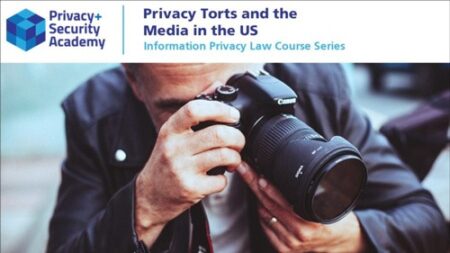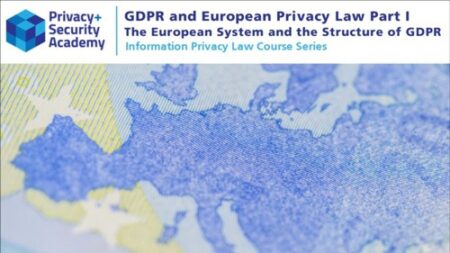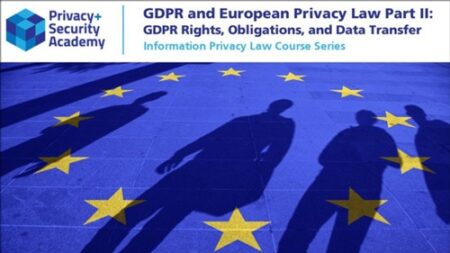Description
LEARNING OBJECTIVES
To understand how the Fourth Amendment works and when it applies, to learn about how the Electronic Communications Privacy Act (ECPA) regulates electronic surveillance, to understand how the Fourth Amendment works in cases of national security and foreign intelligence, and to learn about the Foreign Intelligence Surveillance Act (FISA).
Length: Approximately 1 hour
Written by: Professors Daniel J. Solove and Paul M. Schwartz
Instructor: Professor Daniel J. Solove
FAQs
Preview this Course
COURSE DESCRIPTION
This course provides an overview of the privacy law involving law enforcement and national security issues. The course provides an introduction to the Fourth Amendment and its regulation of searches and seizures. It discusses the U.S. Supreme Court’s use of the Reasonable Expectation of Privacy test, and how it determines the types of activities that are regulated by the Fourth Amendment. The course shows how this test has been applied to information gathering through various technologies such as thermal sensors, tracking devices, and GPS. It discusses federal and state electronic surveillance law, with a focus on the Electronic Communications Privacy Act (ECPA). The course also covers when and how the Fourth Amendment works differently in cases of national security and foreign intelligence as well as the Foreign Intelligence Surveillance Act (FISA).
CERTIFICATE
To obtain a broad overview of privacy law, to understand the key issues involved, to learn how privacy law works, and to understand the differences and similarities between various privacy laws.
COURSE OUTLINE
About this Course
Introduction
The Fourth Amendment: Background
Basic Structure
Reasonable Searches and Seizures
Non-Law Enforcement Searches
Subpoenas and Court Orders
The Fourth Amendment: The Reasonable Expectation of Privacy Test
The Origin of the Reasonable Expectation of Privacy Test
Olmstead: The Case of the Whispering Wires
Katz: The Case of the Bookie in the Booth
Applying the Reasonable Expectation of Privacy Test
The Misplaced Trust Doctrine
The Third Party Doctrine
Abandoned Items
Genetic Information
The Plain View Doctrine and Surveillance in Public
Sensory Enhancement Technology
Visual Enhancement
Thermal Sensors
Location Surveillance and GPS
State Constitutional Provisions
Electronic Surveillance Law
Electronic Communications Privacy Act (ECPA)
Types of Communications
The Wiretap Act
The Stored Communications Act
The Pen Register Act
Applying ECPA to Digital Searches and Seizures
State Electronic Surveillance Law
National Security and Foreign Intelligence
The Fourth Amendment
The Foreign Intelligence Surveillance Act (FISA)
Applicability and Scope
Use of Evidence in Criminal Prosecutions
Standing
Conclusion
COURSE READINGS
Required Readings
Handout: Electronic Communications Privacy Act (ECPA)
Handout: A Comparison Between the Fourth Amendment and Electronic Surveillance Law
Recommended Readings
Book: Daniel J. Solove & Paul M. Schwartz, Privacy, Law Enforcement, and National Security (Aspen 2nd edition 2018)






